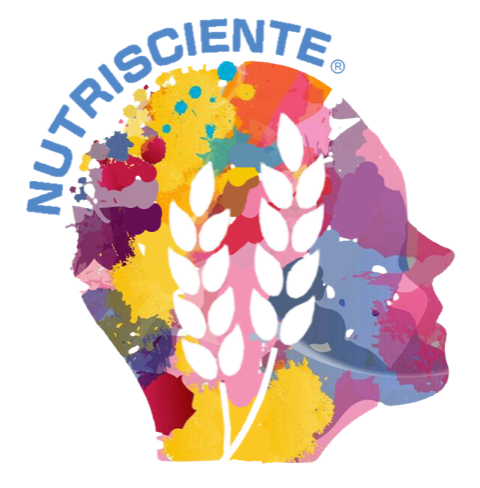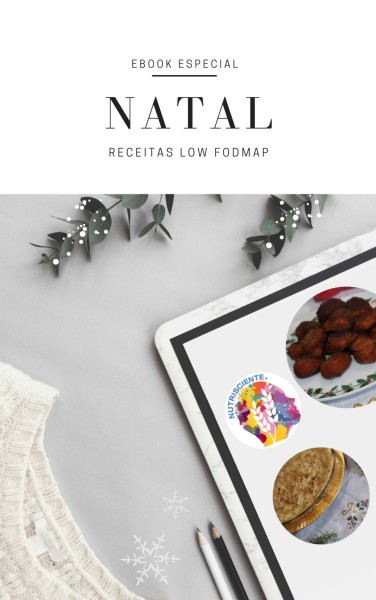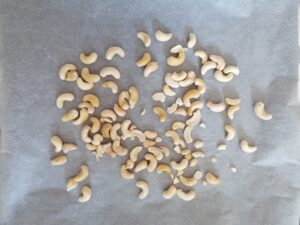If you have been following the Nutrisciente blog, the term “Irritable Bowel Syndrome” is no longer unknown to you. In fact, Nutrisciente is a company that specializes in the area of intestinal pathologies. This is because I, Sara, have an inflammatory bowel disease (IBD) and irritable bowel syndrome (IBS). You can read a bit more about my story in this blog article.
I’ve spent several Christmases and festivities with a question that often blocks us: what am I going to eat? Well, the majority of the population can eat this and that. But a person with an intestinal pathology has fears. Fear of triggering symptoms at the slightest ingredient that may be in that food or meal. Do they have onion? Does it have garlic in it? Does it have this or that? This food insecurity at meals, when we go out to eat, becomes constant. Of course, we wouldn’t think about this if we were to make one excess or another. We think about it because abdominal pain is constant, as well as cramps, abdominal distension, among many other symptoms. The decrease in the quality of life of these patients generates a lot of anxiety and frustration, especially when meal time comes and we don’t know the ingredients. And this will be a constant concern, if we do not have a correct follow-up with a Nutritionist, certified for the Low FODMAP Diet, and/or with a deep knowledge about gastrointestinal pathologies. It is essential to know the reactions of your body and gastrointestinal system according to the various food groups. This knowledge will reduce your worries and bring you greater security about meals, and remove fears when you choose to eat out. If you wish to be accompanied by Nutrisciente® you can book your consultation here.
Today I will share with you some tips on how to enjoy this Christmas season, with family, with several traditional meals, without that moment bringing you anxiety (and severe symptoms!). Some of these tips were shared in my last LIVE on instagram, which you can peep here.
My suggestions for this Christmas and New Year festivities, for those with gastrointestinal issues – especially any IBD or IBS – are as follows:
#1: Download the Nutrisciente® Christmas ebook. If you don’t already have the ebook with traditional recipes adapted for intestinal problems, then you must do so. You can download it for free here.
#2: Plan your main meals and desserts. This step will be much easier if the festivities are at home, since you can manage it yourself. However, this is not always the case. For that reason, talk to the hosts of the house you’ll be staying at and/or the restaurant beforehand. Ask about the ingredients and try to negotiate the alteration of one or another ingredient, so that you can consume that meal. In case it’s at a relative’s or friend’s house, you may also suggest taking one or another dish/dessert so that you feel safe to consume that meal and share it with others.
#3: Take the other meals throughout the day. We have a certain tendency, during festivities, to skip meals in between and consume larger quantities of food at Christmas dinner or when we are in a social environment. Avoid eating large quantities of food to avoid digestive problems. So, have small meals throughout the day so that you don’t feel hungry and you can manage the quantities consumed.
#4: Stay hydrated. If there’s one thing your gut and gastrointestinal system need on a regular basis, it’s to stay hydrated. So, drink liquids throughout the day. If you opt for hot drinks, you should pay some attention to the type of infusion or tea you choose, as some may contribute to the onset of symptoms.
#5: Pay attention to the amount of desserts. Not because you can’t eat them (because you can!). However, again, you should avoid eating large quantities. Especially if the desserts contain ingredients rich in FODMAP, or fats or excess sugars which can cause some discomfort if consumed in excess.
#6: Moderation of alcoholic drinks. Some alcoholic beverages we usually drink around this time of the year (like rum, liquor, etc.) contain high levels of FODMAP. So, moderate the quantities, especially if you have consumed foods with other FODMAP contents, to avoid FODMAP accumulation.
From the bottom of my heart, I wish you enjoy this Christmas without fear and with a big smile on your face.
A conscious hug,
Sara Barreirinhas




